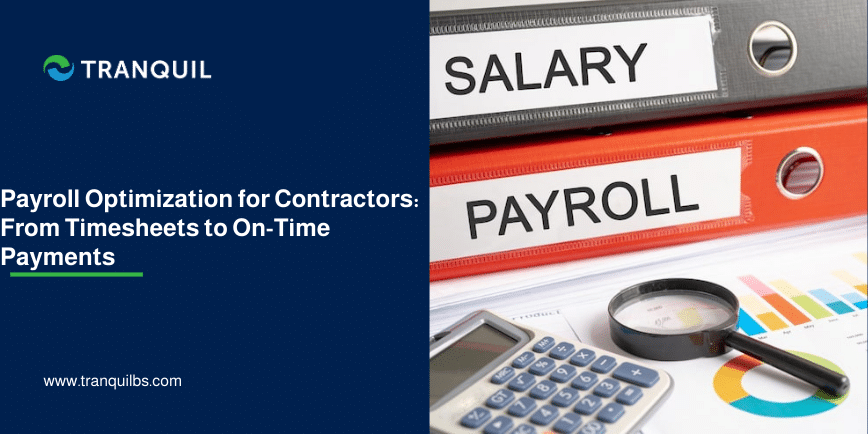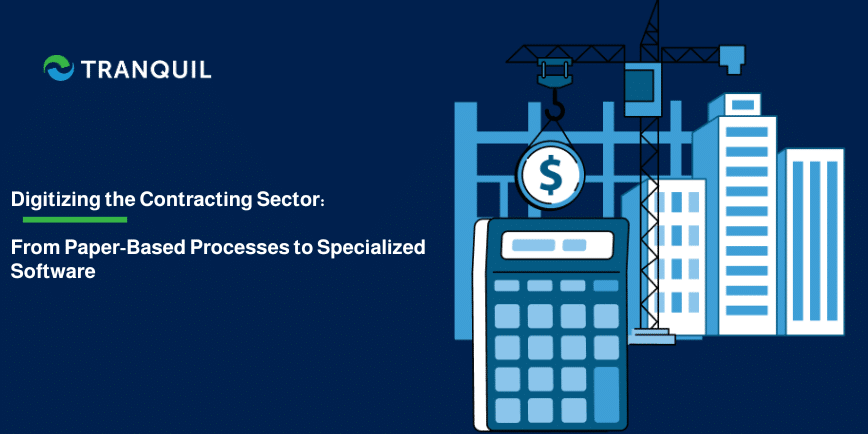
Payroll Optimization for Contractors: From Timesheets to On-Time Payments
Imagine that 40% of business owners spend over 80 hours annually on payroll and tax-related tasks. This number may even double in construction and real estate companies, where managing payroll is significantly more complex due to large numbers of site-based workers, multiple project locations, and constantly changing employee data.
Now, think about what can be accomplished in 80 hours — a business could close a million-dollar deal or prepare a complete project schedule for a mid-sized mall or residential tower. That’s when business owners realized payroll management is not a simple task. It deserves more attention to both save time and boost productivity.
Why Is Payroll Management Complex in Real Estate Projects?
At first glance, payroll management may seem like a simple task in most companies. However, the reality is quite the opposite—it requires great precision and is prone to many errors, especially when handled manually. Below are the key reasons why payroll processing is particularly complicated in real estate and construction companies:
-
Multiple Work Sites Within the Same Company:
Large real estate companies often manage multiple projects at once, each at a different location. This makes manual payroll disbursement much more complicated.
-
Presence of Temporary Labor:
Construction companies frequently rely on temporary or seasonal labor, such as subcontractors and freelance workers. These frequent changes require accurate and dynamic payroll calculations and automated handling of workforce fluctuations.
-
Large Workforce:
Some contracting companies employ hundreds of thousands of workers—especially large real estate firms managing dozens of projects. Manual payroll management at this scale dramatically increases the likelihood of errors.
-
Variation in Payment Methods:
Not all employees are paid the same way. Some receive daily wages, others are paid weekly, while others may be compensated based on project completion or performance percentages. This diversity in payment structures makes manual payroll processing highly error-prone, especially in large companies.
-
Cross-Border Projects:
Many real estate and construction firms operate in multiple countries, which introduces complexity in payroll regulations, currency conversions, tax compliance, and labor laws—making it essential to implement smart payroll management systems.
-
Employee Dissatisfaction Due to Delays:
Traditional payroll methods often lead to payment delays, frustrating workers. This dissatisfaction can significantly affect morale, productivity, and may ultimately delay project delivery due to unrest or reduced commitment.
-
Insurance and Taxes:
Payroll is closely linked with insurance and tax calculations, which often require complex and precise formulas. Each employee’s insurance must be calculated accurately, followed by the appropriate tax deductions. Performing this manually leaves high room for error and increases administrative overhead, making it essential to use intelligent automated systems.
-
Project Delivery Deadlines:
All construction projects are bound by strict deadlines. Any delay in salary disbursement becomes a ticking time bomb, causing unrest among workers. This negative sentiment can escalate to strikes or reduced productivity, ultimately delaying the entire project delivery.
That’s why adopting a cloud-based ERP system has become essential—it manages payroll intelligently and minimizes the margin of error. Leading contracting companies have realized that implementing smart payroll processing is no longer optional; it’s a critical operational necessity for sustaining projects and maximizing efficiency and productivity.
Beginning the Solution with Timesheets
Timesheets are time-tracking records that log employees’ check-in and check-out times, as well as their working hours and performance at job sites with high accuracy. This leads to transparency in payroll calculations and ensures that each employee receives exactly what they deserve—no more, no less.
It’s worth noting that large contracting projects face major challenges in managing payroll details due to the multiplicity of job sites and the presence of temporary workers. This is where Timesheets come in, making it much easier to monitor employees and calculate their wages with high precision.
But how do these sheets work? To answer this question, we need to understand how data is recorded within Timesheets, which we’ll explain below:
- Employees themselves record their check-in and check-out times, along with the tasks they completed, using a smart application integrated with the ERP system.
- Site supervisors are responsible for recording attendance and departure data for workers, especially when those workers are not trained on modern systems, or when the job site is too large and includes many employees and workers.
- Fingerprint and smart card systems: Modern companies allocate smart cards that intelligently track attendance and check-out and integrate this data into the Timesheets system. All of this ensures transparency in wage calculation and accurately determines the salary each employee truly deserves.
To understand the importance of Timesheets, we can look at a real-life example of a construction company in Dubai that has multiple projects, such as a residential tower in Dubai Marina, a shopping mall in Dubai Hills, and a villa compound in Dubai Land. Imagine that more than a thousand workers and administrators are working on these projects. Can you imagine how difficult it would be to manually calculate the working hours for each employee? It seems impossible. This is where Timesheets play a vital role in accurately tracking workers and correctly calculating their wages based on that data.
These sheets reduce error rates and ensure transparency in payroll. Moreover, Timesheets are closely integrated with the ERP system, making the payroll department part of a unified structure across all departments. This guarantees that the project owner achieves full departmental integration and maximum operational efficiency.
Verifying Actual Presence at Work Sites – Geo-fencing
You may wonder: what ensures the credibility of employees when recording their check-in and check-out times? Or at the very least, will they accurately log their working hours? Is it all just left to their conscience?
In reality, most successful companies rely on advanced technologies to determine employees’ locations. This technology is known as Geo-fencing, which uses GPS or radio waves. It determines the location of employees within the job site and is linked to Timesheets. As a result, employee working hours and attendance times are accurately recorded.
This system is also integrated with the cloud-based ERP system, ensuring precise monitoring and real-time logging of notes. Therefore, wages are calculated accurately using these applications.
Geo-fencing technology is highly effective in real estate companies, as work sites often include hundreds of workers. This makes it difficult to record their attendance in real time. However, when using this technology, the system accurately logs working hours and check-in/check-out times. This ensures transparency in salary disbursement and the calculation of deductions.
Below are the key benefits of geofencing summarized in a few points:
- Track a large number of workers simultaneously using GPS technology.
- Integrate geolocation tracking with Timesheets, enabling accurate automation of data.
- This technology is extremely precise, as it records employees’ working hours accurately and stops once the worker leaves the job site.
- Efficient human resource management: this technology solves HR-related challenges and helps regulate workflow.
- When geofencing is integrated with Timesheets, and both are linked to the ERP system, managers will receive real-time, accurate reports. This enables transparent and fair payroll processing that satisfies all parties.
From Accurate Tracking to Ensuring Timely Payroll Disbursement
The smart systems discussed in this article do not only ensure precise payroll calculation—they also help guarantee that wages are disbursed on time. As a result, no issues or disputes will arise regarding salary payments, and there will be no delays as commonly seen in traditional construction companies that rely on outdated payroll methods.
All of this positively impacts employee behavior and job satisfaction. When a worker is confident, they will receive their salary on the scheduled date—and that the amount will be calculated fairly based on their actual working hours—they are more likely to work with diligence and consistency, and to trust the company they are employed by.
The Golden Solution: ERP System
With just a single click, the manager can determine the exact salary an employee deserves—without complex calculations. The ERP system is an effective tool for managing wages and salaries smoothly, as it helps calculate pay, deduct leave, advances, and more—all in record time. This is in contrast to traditional systems that delay salary payments, cause dissatisfaction among workers, and lead to reduced productivity.
What’s remarkable about the ERP system is that it’s an integrated platform that connects all departments and accelerates workflow. Payroll management is one of the most critical pillars in contracting companies, so it must operate quickly to ensure employee satisfaction, which in turn boosts productivity and work quality. All of this ensures project deadlines are met and new projects can be secured.
Let’s assume a Saudi construction company employs 700 staff and has taken on multiple projects at different sites—like building a residential complex in Jeddah, a hospital in Riyadh, and renovating a hotel in Jeddah. Now, imagine how payroll would be handled without an ERP system.
Without this modern cloud-based system, supervisors would manually log each worker’s hours and send them via email to the HR department. HR staff would then spend days calculating salaries, leading to delayed payments and dissatisfaction among workers. This could disrupt progress and delay project delivery.
However, with the ERP system in place, working hours are recorded accurately, and salaries are calculated automatically without any delays. Workers receive their pay on time, resulting in a sense of satisfaction and achievement, which reflects positively on project timelines and workflow efficiency.
Improving payroll management in construction companies is not a luxury—it’s a necessity for completing projects on time. Therefore, any real estate company seeking to improve operations and reduce obstacles must adopt a cloud-based ERP system that ensures smooth workflow and faster project delivery.



